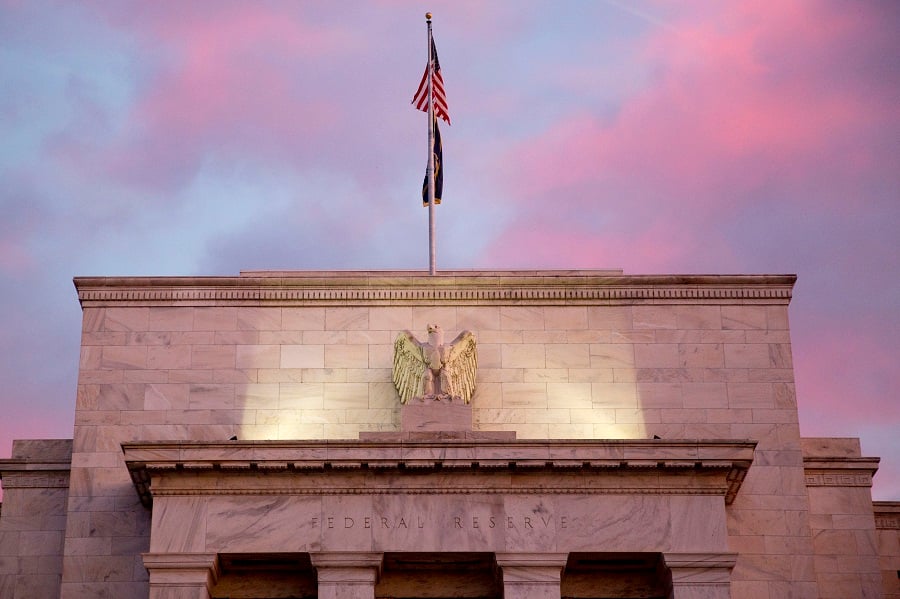Markets are pricing in about a 90% probability that the Federal Reserve will lower interest rates on Wednesday. Jefferies Financial Group Inc. isn't so sure.
The global headwinds that pushed the central bank to
cut rates in July and September have abated somewhat, according to the firm's money market economist Thomas Simons. U.S.-China trade tensions and Brexit uncertainty have also diminished, while the gap between the Fed's policy stance and that of other central banks has narrowed, he said.
Against that backdrop, Mr. Simons believes policy makers are likely to keep rates unchanged in the days ahead and leave a December cut on the table.
[Recommended video: Advice firm compliance manuals may need to be updated for June 2020]
While holding rates may spur a "temper tantrum" in markets, it would push back against aggressive Fed pricing and cement the idea of a mid-cycle policy adjustment, Mr. Simons said.
"If they continue with so many consecutive rate cuts, they can never break the cycle of market expectations thinking more are coming," he said in an interview. "It's time for the Fed to take a step back and see if the prior cuts are going to have an effect before moving forward with another one."
Benchmark 10-year Treasury yields rose to a six-week high of 1.86% Monday as President Donald Jr. Trump touted trade progress and the European Union granted the UK a three-month Brexit delay. Rates on 2-year Treasuries climbed by about three basis points.
[More: Negative yields find their way into U.S. investor portfolios]
Taper tantrum
Fed fund futures are currently pricing in almost 22 basis points of easing Wednesday, and 30 basis points by year-end. The Fed's September meeting minutes showed policy makers were split about the need for further rate cuts.
A knee-jerk response to the Fed standing pat would likely see U.S. stocks — which rallied to record highs on Monday — sink and the yield curve "twist," according to Mr. Simons. In other words, while the Fed's bill purchases and lower inflation expectations should continue to suppress short- and long-dated yields, 3- to 7-year Treasuries may sell off, he said.
"There will be a little bit of a temper tantrum, but I think the volatility will be short-lived," Mr. Simons said. "Stocks won't like it, but it isn't exactly going to set off a prolonged sell-off."
[More: JPMorgan, BlackRock say investors too cautious on repeat of 2008]







